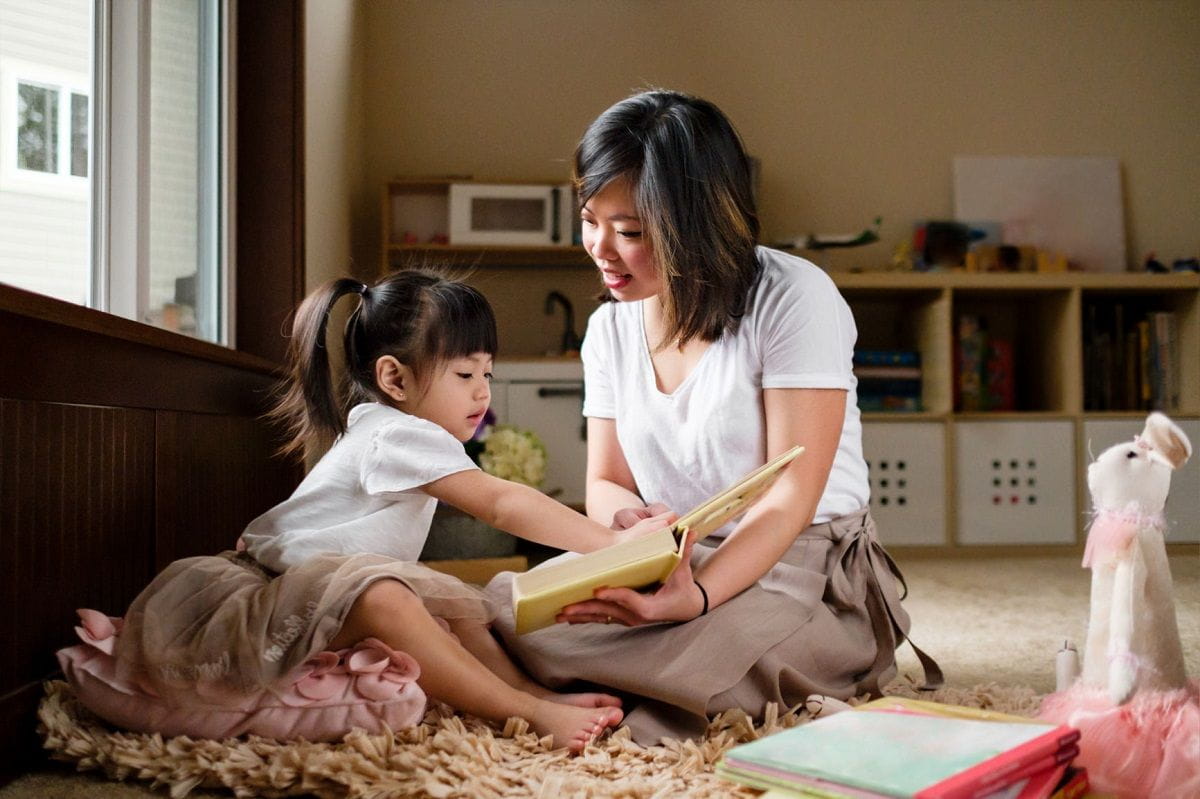"I Want Mommy!" How to Handle It When Your Child Plays Favorites

Is It Normal for My Child to Prefer One Parent Over the Other?
Does your little one demand Dad—and only Dad—during story time? Or does your child order a command performance from Mom for their bath, while Papa is banished from the bathroom? Are you occasionally greeted with a shout—No Mama! Or No Dada!—and a chubby finger pointing you back from whence you came?
When it feels like your child is “playing favorites,” try not to worry or take it personally, says Celestte Dills, who works at KinderCare Education helping teachers, families, and children address all kinds of challenging behaviors. Not worrying may be easier said than done, but truly, parental preference is a normal and healthy part of toddlerhood. It can pop up between ages one to three, as children become more independent and learn to express their opinions.
When a child has a strong preference for one parent—Dad’s taking me to swim lessons, Mama’s taking me to the park—they’re expressing their opinion, but they’re also starting to build their own special relationships with the people they love (namely, you), and that’s a good thing. “It’s great that your child is making these choices—it’s a way for them to practice their growing independence,” says Dills. “As a parent, it’s really good to honor those choices.”
Here’s how to honor their choices with kindness and grace—even if your little sweet pea isn’t expressing their preferences with much grace:1. Find a routine the whole family can share.
Plan regular, special time for your little bean to spend with each parent, independently. It could be as simple as an evening routine where Dad does bath time and Mom does story time and bedtime. Talk to your child about the routine—a lot—and explain what will happen at each step along the way: Remember Dad’s going to start your bath, and Mom will come up once you’ve brushed your teeth.
Your Parental Preference Plan: Involve your little one in the routine and rhythm of the evening by asking questions like: What happens next? That lets them know that they are very much a part of the family dynamic and that everyone has a place.
2. Model polite language.
If your child wakes up and says, No, Mommy in lieu of Good morning, keep your reaction even-tempered. A big reaction of your own, like pouting or fake crying or getting angry, may only encourage your child to try the behavior again. Instead, focus on giving more positive language to ask for what your child wants—keeping in mind that learning this can be challenging for kids who are still learning to speak.
Your Parental Preference Plan: It sounds like you were hoping to see Daddy this morning. Try asking for “Daddy, please” and let’s see if he’ll come in and say good morning to us!

3. Empathize with their feelings.
When you come to pick your child up at daycare and they tearfully ask, Where’s Mom? I want Mom! Let your child know that you understand how they feel. Even if you can’t change the situation—because Mom’s working late, say—acknowledging your child’s feelings helps them learn to recognize and label emotions themselves.
Your Parental Preference Plan: Are you really missing Mom today? I love her, too—and I understand it makes you sad when she’s not here to pick you up. Would you like a hug?
4. Lighten the mood.
You walk in with the laundry basket and your tiny commander-in-chief bellows NO, PAPA! Lighten both of your moods with a playful response. This teaches your child positive ways to ask for what they want and models kindness in the face of others’ feelings.
Your Parental Preference Plan: Wow, it sounds like you and Mama must be having an amazing time together. Are you flying to the moon? Driving a bus? Going to the beach?
5. Give your child something they can control.
As they grow bigger and more capable, your little tot is starting to discover what they can—and cannot—control in their world. (In other words, your toddler is developing a stronger sense of self.) When your child says, “No, Mommy,” they are communicating a desire to control, well, you.
Your Parental Preference Plan: Offer a choice that your child really can control. It sounds like you’re having a great time with Dada. Do you want to keep playing dolls together? Or would you like to come into the kitchen and help Mommy make pancakes?

6. Find a good stand in.
Dad is out of town for the weekend, and your little darling really wants him to read a story before bed. For the times when you can’t meet your child’s request—and there are plenty of those—clearly and simply explain the situation and help find a creative solution.
Your Parental Preference Plan: Put a photo of Dad on the bookshelf so they can “pick out a book together,” or include the teddy bear Dad brought when you read bedtime stories together. It’s not a replacement for the real thing, but these small acts show you are acknowledging your child’s feelings, which helps them feel valued and heard!
Most importantly, don’t let the parental preference phase get you down! This phase tends to pass as children build their language skills and gain more control over other things in their world. You might even notice that the preference can switch back and forth from one parent to the other. (Also perfectly normal.) In the meantime, know that every time you respond respectfully to your child’s feelings and don’t take it personally yourself, you are teaching a very valuable lesson: that other people’s feelings matter and should be respected. That’s something that will help them have strong, connected relationships for life!
Plus, there’s this: If you happen to be the un-preferred parent, you get some extra me-time while the other parent handles bedtime. Take advantage! Read a book, catch up on some tasks that have been hanging over your head, indulge in some matcha, or go for a walk—because odds are very good that you’re absolutely, positively going to be the go-to parent at another date.



